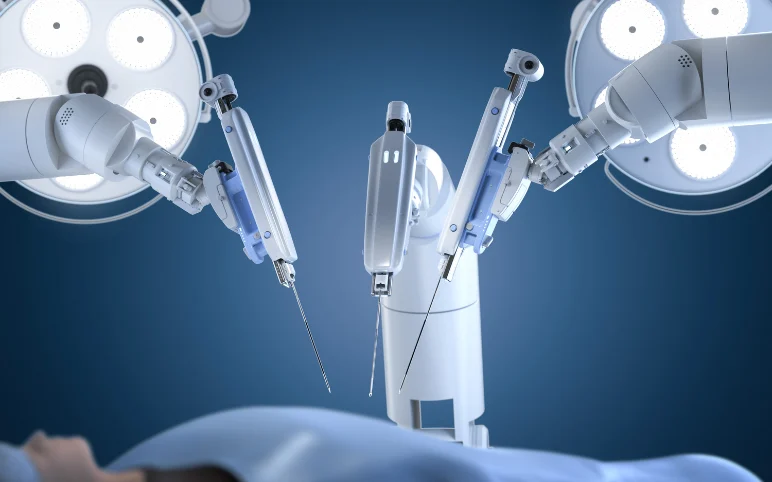Evaluating the Impact of Clinical Decision Support Systems (CDSS) on Health Outcomes
Dec 14, 2022
Table of Contents
Clinical Decision Support Systems (CDSS) is one of the most anticipated health technologies that tend to transform treatment dynamics and the healthcare market outlook. With the ongoing development, the CDSS is expected to hold immense potential to bridge the gap between the available patient data and healthcare experts. Long-term challenges in the healthcare market, such as patient management, chronic disease management, and value-based health care (VBHC), are some of the critical areas registering transformation with the CDSS. Several clinical decision support systems are being evaluated and implemented across verticals in the healthcare system, such as diagnosis, disease management, care and treatment, drug prescription, evaluation, and prevention. With each passing day, CDSS is getting more efficient and effective with technological advancements. The incorporation of new-age technology, such as Artificial Intelligence (AI), Big Data, and Machine Learning (ML), among others, is also immensely stimulating the CDSS market growth.
What is CDSS, and How is it Impacting the Healthcare Market Dynamics?
CDSS are computer applications designed to help healthcare professionals make better clinical decisions about individual patients. More specifically, CDSS are active knowledge systems that use two or more patient data items to generate case-specific advice. Developing an effective CDSS is a burdensome task that utilizes prior assessment of the most promising theories, techniques, and methods used at the present time. With the use of medical knowledge and analysis of data, healthcare experts can make the appropriate decision in real-time. Moreover, it can provide customized advice for an individual patient’s care with expert knowledge and rules engines based on the patient’s specific information and related medical facts. Furthermore, several advanced CDSS tools are available in the market that can offer reminders for preventive care, alerts about potentially dangerous drug interactions, and alerts clinicians to possible redundant testing their patient has been scheduled to undergo. Overall, it can deliver measurable value, create actionable insights, and deliver more in-depth information to the user. This leads to increased quality of care, enhanced health outcomes, avoidance of errors and adverse events, improved efficiency, cost-benefit, and provider and patient satisfaction.
Downloads
Click Here To Get the Article in PDF
Recent Articles
- Zimmer Biomet Wins FDA Breakthrough Status for Iodine-Treated Hip Implant; Terumo Gains U.S. Clea...
- Nanobots in Medicine: Transforming Healthcare from the Inside Out
- Stryker’s Spine Guidance 5 Software FDA Approval; VIALASE Received CE Mark; The Texas Heart Insti...
- Collagen Matrix FDA 510(k) approval for Fibrillar Collagen Wound Dressing; Roche’s cancer diagnos...
- Digital Twins in the Healthcare Industry
CDSS Types and Segmentation
As per the model type, Clinical Decision Support Systems are segmented as Knowledge-Based CDSS and Non-Knowledge CDSS. Similarly, by mode of delivery, it is segmented as cloud-based and on-premise. As per DelveInsight’s assessment, in the mode of the delivery segment of the clinical decision support systems market, the cloud-based clinical decision support systems are estimated to hold a significant share in the clinical decision support systems market in the coming years owing to various advantages that are associated with the cloud-based CDSS. The cloud-based knowledge-based imaging CDSS are typically used for image ordering, where CDSS can aid radiologists in selecting the most appropriate test to run, providing reminders of best practice guidelines, or alerting contraindications to contrast. The cloud-based clinical decision support systems hold immense potential to reduce medication errors. Overall, owing to the various advantages associated with cloud-based clinical decision support systems, there will be an increase in the demand for these particular types of support systems, which will drive the market growth of clinical decision support systems.
Benefits of CDSS
Clinicians utilize the CDSS for various applications, such as diagnosing diseases, enhancing care by eliminating unnecessary testing, improving patient safety, and avoiding potentially dangerous and costly complications. CDSS has several benefits and potential applications in the healthcare market and can be implemented across key areas such as management processes, diagnosis, disease care and treatment, and drug prescription. Reducing time in healthcare processing, increasing the order of treatment related to administrative issues, and lowering the cost of paper forms are some of the key benefits of the CDSS in the healthcare market. The wide-scale adaptability of the CDSS can reduce medical errors, avoids medical advice as opposed to protocols, and enhance treatment sequences and tests. It can also increase the service time directly to patients, improve the regularity of the use of guidelines and clinical procedures, and accelerate and improve the use of the latest clinical findings.
Challenges to CDSS
There are several issues and challenges in CDSS implementation. Clinician workflow disruption is one of the key challenges in CDSS. The CDSS can lead to increased cognitive effort and less time face-to-face with patients. Similarly, in some cases, the operational impact of poor data quality and incorrect content can create issues. CDSS uses data from a variety of sources to provide guidance to physicians at the point of care. Similarly, CDSS generates relevant alerts and diagnostic suggestions, largely depending on the quality of input data. The performance of decision support can be affected if data collection or input into the system is not standardized or if it is effectively corrupted. Lack of transportability and interoperability, users skill, alert fatigue, and inappropriate alerts are among other major challenges with the CDSS.
Clinical Decision Support Systems Market Dynamics
The growing demand for improvement in patient care is driving the CDSS market growth globally. Moreover, the Clinical Decision Support Systems Market is anticipated to register immense growth in the coming years owing to the increasing patient pool worldwide and an increasing number of geriatric patients that are prone to chronic disorders. However, some of the key aspects associated with the CDSS, such as higher costs of software installations and post-sale support and the data security concerns related to cloud-based systems, are anticipated to hinder the clinical decision support systems market growth.
Leading Players in the CDSS Market and Regional Market Assessment
Globally, some of the leading players operating in the clinical decision support systems market include Oracle, Epic Systems Corporation, IBM, Change Healthcare, Medical Information Technology, Inc., Koninklijke Philips N.V., Siemens Healthcare, Allscripts Healthcare Solutions Inc., Wolters Kluwer NV, Mckesson Corporation, Zynx Health Inc., Elsevier, NextGen Healthcare Inc., Agfa-Gevaert Group, Athenahealth Inc., VisualDx, naviHealth, Inc., CureMD Healthcare, Homecare Homebase, LLC., F. Hoffmann-La Roche Ltd., among others. Owing to high return and growth prospects, several new players and startups are anticipated to enter the market in the coming years.
As per the assessment by DelveInsight, North America is expected to account for a significant share of the global clinical decision support systems market in the coming years. Some of the key factors, such as the rising patient pool in the region, the growing demand for high-end products for the improvement of the quality of patient care, the increasing prevalence of chronic disorders (such as diabetes, cardiovascular disorders, hypertension, infections, and many more) due to high consumption of processed food & lifestyle changes, and growing incidence of obesity are anticipated to propel the market growth for the CDDS in the region. Moreover, the surge in the geriatric population susceptible to chronic medical ailments (such as diabetes, neurological disorders, cardiovascular diseases, and others) will also stimulate the demand for clinical decision-support systems in North America.
Recent Developments and Breakthroughs in the CDSS Market
Several clinical, commercial and regulatory developments have been registered in the CDSS Market in recent years. Some of the major development in the segment include-
- In April 2022, Change Healthcare, a leading healthcare technology company, released InterQual® 2022, the latest edition of the company’s flagship clinical decision support solution for the delivery of the latest, evidence-based appropriate care. The release includes new criteria for emergent trends, restructured and interactive criteria to streamline workflows, and artificial intelligence (AI) to drive proactive insights and efficiency.
- In April 2021, Change Healthcare announced to unveil of InterQual® 2021, the latest edition of the company’s flagship clinical decision support solution. The new release features four new Medicare criteria modules and many evidence-based content updates and enhancements, including new guidance on caring for COVID-19 patients, addressing social determinants of health, and the appropriate use of telehealth.
- In October 2020, WeHealth Digital Medicine, Servier Group’s e-health business unit, and CureMatch, a leader in digital health precision medicine, announced that they had received CE Mark approval for Bionov. Bionov is a clinical decision support software platform that provides healthcare professionals personalized single-drug and combination-drug treatment options based on their cancer patients’ molecular profiles.
- In March 2020, IBM Watson Health and EBSCO Information Services announced a strategic collaboration to enhance clinical decision support and operations for healthcare providers and health systems.
Key Analysis and Perspective
The implementation of Clinical Decision Support Systems are challenging, and healthcare organizations or hospital can have several obstacles related to technical support and issues such as user interface, patient data coding, interoperability, and human factors. However, once implemented, it can immensely transform service delivery segments and increase patient safety by reducing medication errors and adverse effects. Moreover, it can increase cost-effectiveness through faster order processing, optimizing decision-making, and improving compliance with evidence-based clinical guidelines.
As per the assessment by DelveInsight, the Global Clinical Decision Support Systems (CDSS) Market was valued at USD 2.23 billion in 2021 and growing at a CAGR of 6.62% during the forecast period (2022 to 2027); it is expected to reach USD 3.28 billion by 2027. The Clinical Decision Support Systems Market is anticipated to grow immensely in the coming years, owing to the increasing pool of patients due to the rising prevalence of chronic disorders and unhealthy lifestyles and habits. Furthermore, the surging need by patients for improvement in the quality of patient care and the growth and development of intelligent software solutions in the healthcare sector globally will also propel the market growth.

Downloads
Article in PDF
Recent Articles
- GE Healthcare and Masimo Announced Collaboration; Samsung Launched New Ultrasound System ‘V6’; MO...
- Medtronic Secures FDA Green Light for Affera™ Mapping and Ablation System Alongside Sphere-9™ Cat...
- PAVmed-Novosound’s Partnership; J&J Acquires Abiomed; Approval to Sysmex’s Assay Kit t...
- Glowing Prospects: Energy-Based Aesthetic Devices Market Outlook
- From Lab to Bedside: The Rise of AI-Enabled Digital Pathology



